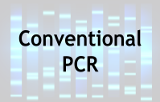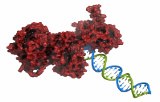MCE offers over 40,000 small molecule inhibitors or agonists targeting more than 1,000 targets across 20+ signaling pathways, encompassing various hot research areas such as cancer, neurological diseases, and cardiovascular diseases.
Natural Products
|
|
Labeled Compounds
|
|
Compound Library
|
| MCE provides you with over 110 00+ natural products, covering a variety of structural classifications and product sources , which can be applied in industries such as scientific research experiments, food, and cosmetics. In addition, not only can you filter out the required products according to your needs, but they also provide product customization services, which can fully assist your scientific research. Isotope |
|
MCE can provide over 7700 high purity, high isotopic enrichment compounds, which include 2 H, 13 C, 15 N, 18 O, and other stable isotope atoms. These can be used as tracers for metabolic flow studies, or as quantitative internal standards for techniques such as NMR, LC/GC MS, LC/GC MS/MS, etc.
|
|
MCE supplies more than 200+ compound libraries, including bioactive compound libraries, diversity compound libraries, fragment libraries, as well as diversified customized libraries based on your special needs. Those libraries can be used for drug repurposing, new drug discovery and mechanism research. Besides, MCE also provides target based compound screening (kinase, GPCR, nuclear receptor, ion c hannel, etc.), cell phenotype based compound screening (cell viability, apoptosis, etc.), affinity based compound screening (affinity mass spectrometry screening, DEL synthesis and screening), molecular interactions assays (SPR, BLI, ITC, MST, etc.), and customized screening, fully assisting you in drug discovery. |
| |
|
|
|
|
PROTAC MCE
|
|
Reference Standards MCE
|
|
GMP Small M olecules
|
|
MCE can provide a series of PROTAC related products, such as Ligand for E3 Ligase 、 PROTAC Linker 、 Ligand for Target Protein for PROTAC E3 Ligase Ligand Linker Conjugate Target Protein Ligand Linker Conjugate PROTAC, etc.
Those products can be used for PROTAC synthesis. Besides, MCE also provides one stop services for the design, synthesis, analysis, purification, optimization, detection and evaluation of PROTAC related products mentioned above , fully assisting you in PROTAC drug
|
|
Offers a wide variety of reference standards (analytical standards), including active small molecules, natural products, lipids, isotopes (Internal standards), and more. These products are applicable in fields including pharmaceutical analysis, identification and quantification of biomarkers, environmental monitoring, and food safety. All reference standards MCE supplied are rigorously tested under the ISO 17025 system. Comprehensive an alytical documentation accompanies each product, providing evidence of purity, content, and structure, supporting measurement traceability.
|
|
MCE offers 60+ GMP related products covering applications in cell and gene therapy and antibody drug conjugates. GMP small molecule compounds are auxiliary reagents in cell therapy production and can be used for the reprogramming, expansion and differentiation of stem cells. Those products can be used in gene therapy to enhance de livery efficiency, etc. GMP ADC related small molecule products include ADC Payload, Drug Linker Conjugates and related intermediates. The GMP small molecule products provided by MCE are produced in strict compliance with cGMP guidelines, with reliable qua lity and high cost performance. They support declaration work and on site audits from IND to NDA. |
| |
|
|
|
|
ADC Related
|
|
Oligonucleotides
|
|
Recombinant Proteins
|
MCE provides 1600+ ADC related products, including ADC Antibody, ADC Cytotoxin, ADC Linker, Antibody Drug Conjugates (ADCs), and Drug Linker Conjugates for ADC. In addition to ADC, they also provide related product customization and synthesis services for other conjugated drugs PROTAC Linker Conjugates for PAC, ApDC, AOC, PDC, FDC, RD C, ISAC, VDC and SMDC. It is used in cell and animal experiments (mice, rats, macaques, cynomolgus monkeys, patients, etc.) to study the killing effect on tumors and pave the way for new cancer treatments. |
|
MCE offers over 30,000 oligonucle otides, including antisense oligonucleotides (ASO), siRNA, miRNA, and nucleic acid aptamers, covering various chemical modifications (phosphorothioation, 2' F, 2' OMe, and 2' MOE, fluorophores (such as Cy3, Cy5, and FAM)). MCE has a professional team of re searchers, producers, and analysts specializing in oligonucleotide synthesis, with production capabilities ranging from micrograms to kilograms, providing oligonucleotides tailored to customer needs. |
|
MCE offers 10,000+ recombinant proteins with excellent lot to lot consistency, superior activity, and low endotoxin levels. Additionally, They provide personalized customization services. These products can be applied in cell culture, structure and function analysis, immunology assays, antibody production, and in vitro biochemical analysis, among other applications. |
| |
|
|
|
|
Antibodies
|
|
Inhibitory Antibodies
|
|
Enzymes
|
|
MCE provides over 4000 high quality primary antibodies and a variety of superior secondary antibodies, comprehensively covering signaling pathways such as autophagy, apoptosis, immunity, and the cell cycle, with a deep focus on major popular targets. In addition, MCE has devoted itself to the development of over 3300 premium monoclonal antibodies, which are more specific and sensitive, comprehensively empowering your scientific research!
|
|
MCE provides 1200+ high quality, high efficiency and high purity in vivo Inhibitory Antibodies, which can be used as positive controls for drug effect evaluation and other related scientific research. MCE's neutralizing/blocking/functional inhibitory antibodies are widely used in immunology, oncology, neurology, and other popular research fields to help preclinical studies! |
|
MCE provides 3000 enzyme products in a comprehensive range, including Glycobio logy Enzymes, Disease Research enzymes, tissue dissociation enzymes, nucleases, proteases, biochemical detection enzymes, tool enzymes, coenzymes and others. There are also a variety of recombinases covering multiple targets. |
| |
|
|
|
|
Peptides
|
|
Biochemical Assay Reagents
|
|
Dyes
|
| MCE provides a comprehensive collection of high quality peptides including tag peptides, therapeutics peptides, cell penetrating peptides and amino acid derivatives, which have been widely used in functional analysis, antibody research, vaccine research, and especially the field of drug development. Our custom peptide service is also available to propel your projects. |
|
MCE offers a comprehensive range of 3 000+ high quality biochemical assay reagents, including co solvents, chelators, cell assay reagen ts, drug delivery reagents, buffer reagents, etc. Starting from dissolution, the first step of the experiment, MCE biochemical assay reagents can meet your experimental needs and fully assist your experiments.
|
|
MCE provides 2 000+ high quality dye re agents covering many popular research fields, generally with high photon yield, and high signal intensity F luorescent signals can appear within a short time after dyeing, and are not easily affected by light, PH, temperature and fixing agent, and their applications have been deeply penetrated into many fields such as pharmacology, physiology, environmental science, information science, etc., and they have been widely applied to the functional study of proteins, drug screening and other fields. It is also widely used in the fields of protein function research and drug screening. |
| |
|
|
|
|
Kits MCE
|
|
Virtual Screening
|
|
Compound Screening
|
|
Offers a broad range of high quality, cost effective, ready to use assay kits for the convenient and dependable analysis of molecular, protein, and cell biology research. These assay kits range from PCR & qPCR & RT PCR, nucleic acid electrophoresis to vector construction, from protein preparation, protein purification to protein detection, from cell culture to cell analysis.
|
|
Virtual Screening (VS) is a computational approach for identifying active compounds from small molecule databases. MCE, with its extensive database resources and high performance computing servers, offers professional molecular docking and virtual screening services.
|
|
MCE provides target based compound screening (kinase, GPCR, nuclear receptor, ion channel, etc.), cell phenotype based compound screening (cell viability, apoptosis, etc.), affinity based compound screening (affinity mass spectrometry screening, DEL synthesis and screening), molecular interactions assays (SPR, BLI, ITC, MST, etc.), and customized screening, fully assisting you in drug discovery. |
Learn more about MCE cytokines: Ideal growth factors for your research
MCE provides a one-stop solution for drug screening to accelerate early drug discovery! wach the video
Website: www.medchemexpress.com
|






